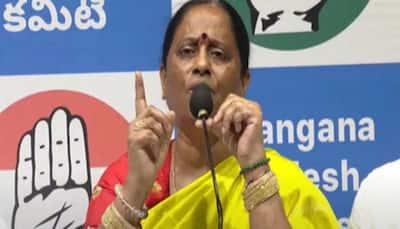
Hyderabad witnessed a political tempest this week when Telangana Minister Konda Surekha found herself at the center of a heated controversy. Her remarks linking the highly publicized divorce of popular actors Naga Chaitanya and Samantha Ruth Prabhu to Bharat Rashtra Samithi’s working President, KT Rama Rao, caused ripples across both political and entertainment arenas.
On Thursday, Surekha took to social media platform X to issue a clarification regarding her controversial statements. She emphasized that her intention was to question KT Rama Rao’s alleged “belittling of women” and not to offend Samantha Ruth Prabhu or her supporters. She offered an “unconditional” retraction of her remarks if anyone was upset by them. In her post, Surekha stated, “My comments are meant to question a leader’s belittling of women and not to hurt your (Samantha Prabhu) sentiments. The way you have grown up with self-power is not only an admiration for me but also an ideal… If you or your fans are offended by my comments, I unconditionally retract my comments. Don’t think otherwise.”
This controversy erupted when Konda Surekha alleged that KT Rama Rao was involved in the dissolution of Samantha and Naga Chaitanya’s marriage. She claimed that while serving as a minister, Rama Rao engaged in tapping the phones of actresses, used information gathered to blackmail them, and alleged involvement in making them “drug addicts.” Her claims further fueled speculations as she asserted that “everyone knows this,” including Samantha, Naga Chaitanya, their family, and the industry at large.
Nagarjuna Akkineni, a veteran actor and father of Naga Chaitanya, swiftly condemned Surekha’s statements.
. He urged not to exploit the private lives of celebrities for political leverage and stressed respecting individuals’ privacy. Nagarjuna’s response reflects the broader sentiment within the film industry, which often finds itself susceptible to political undertones.
Simultaneously, Samantha Ruth Prabhu broke her silence on the matter. Addressing her followers on Instagram, she reiterated that her divorce was a private affair, handled mutually and amicably, devoid of any political conspiracies. Samantha’s appeal for restraining from baseless conjecture highlights her desire to protect her personal life from unnecessary public intrusion.
The unfolding saga took a legal turn as KT Rama Rao, visibly agitated by the allegations, sent a defamation notice to Konda Surekha. In the notice, KTR accused Surekha of making baseless allegations aimed at maligning his reputation. He demanded an immediate retraction of her statements, further intensifying the legal and political skirmish.
The incident underscores the volatile interplay between politics and celebrity culture in India, where public statements can have unexpected ramifications. The response from both the political figures and the involved celebrities denotes an evolving awareness regarding privacy and the repercussions of unfounded allegations.
Additionally, Surekha’s attempt to backtrack and clarify her comments sheds light on the potential fallout politicians face when unsubstantiated claims are made against public figures, especially well-regarded personalities from the entertainment industry.
As the narrative continues to unfold, it presents a crucial point of introspection on the limits of political discourse involving personal lives of celebrities and the ethical considerations therein. Both the film fraternity and political circles are watching closely as the drama progresses, awaiting possible resolutions to the legal proceedings set in motion by KTR’s defamation notice.
This episode serves as a reminder of the power wielded by words and the profound implications they can have on public personalities and political careers alike. As Hyderabad and the larger Indian public stay tuned, everyone is eager to see how this intriguing blend of politics and celebrity will eventually be unraveled.












